- Home
- Patricia McLinn
Sign Off Page 2
Sign Off Read online
Page 2
His grin widened. “I played offense, so the other guys mostly eavesdropped on us. And I’m not sure you can consider anyone under the age of reason a source, can you?”
“That’s the thing about sources, the age of reason is a sliding scale, not an absolute number.”
“Now, see, that’s the sort of insight I was hoping I might learn when Les announced that Elizabeth Margaret Danniher was joining our little family.”
I could hear Haeburn using exactly that phrase, and grimaced. Mike’s grin reached his eyes, and for a second we connected, at least on the level of mutual distaste for our mutual boss.
Then Paycik ruined it.
“I’d heard of you, of course,” he said earnestly, “but when Les said you were coming here, I did some checking, all the way back to when you did newspaper work.”
The guy was a good decade younger than me, but all the way back? “You mean before I joined up with Edward R. Murrow in reporting the London Blitz?”
He waved that off—not generally a smart move when making reference, even obliquely, to a woman’s age. Especially a woman on the camera side of television. Especially a woman recently booted out of a prime spot in front of that camera.
I would’ve expected better from someone so obviously practiced in charming females, but his earnestness had blossomed into full-blown enthusiasm.
“You did some great stuff. Investigations. Exposes. You really stick with a story and dig.”
I was tired of bantering. I was tired, period. I’d looked up the file simply to satisfy a curiosity that had nibbled at my concentration on important matters like hobbling Fine, through a less-than-busy afternoon. But since I’d been off officially for twenty minutes, I was wasting precious time—my own.
It was a commodity I’d forgotten about in all those years with the network. And for the rest of the KWMT staffers it appeared as much of a rarity as in any other newsroom, maybe more. KWMT wasted no resources on up-to-date equipment or extraneous personnel. Which made it all the odder that Haeburn had me doing so little. Granted, the network was picking up my sizable salary—another of my sins when they could sign up fresh blood for much less—but it was still odd.
But who was I to complain?
“Oh, go away.”
“It’s a great story. Biggest around here I can remember.” He looked at me with speculation. “Thurston Fine grabbed the story when it broke, you know.”
And turned it into mush, no doubt.
I said nothing.
That didn’t stop Paycik. “He didn’t let anybody else touch it. But all he’s done is report the company line from Sheriff Widcuff.”
I hadn’t met Sheriff Robert Widcuff. As with jocks, I make no assumptions about politicians or law enforcement professionals—although anyone who would run for an office that combines two of the more thankless jobs around does nudge the “stupid” arrow. Reading between the lines of the clips, Widcuff had pushed it even closer to “is” by charging Burrell when he didn’t have a tight case and the prosecuting county attorney was out of town.
That meant the prosecuting county attorney, a man named Ames Hunt whose political ambitions had already reached my ear, had nothing to lose by acknowledging there wasn’t enough evidence to keep Burrell in jail.
Releasing Burrell took no skin off Hunt’s ambitious nose, but it made Widcuff look bad.
I closed the heavy metal drawer.
“I could go away,” Mike said, retreating to his bantering tone. “I could go away and you could go on reading that skinny file. But I’ve got a better idea—we’ll go get a drink and I’ll tell you all about Tamantha Burrell’s daddy.”
Half turning, I got a better look at his face. Despite his light tone and the returning grin, he was serious.
“Why would I want to hear what you have to say? The file’s the official information.”
“That’s exactly why you want to talk to me. There’s a lot about this case that won’t get in any official document. The whole thing’s pretty interesting, don’t you think?”
It sure beat Mrs. Atcheson’s toaster. But I wasn’t admitting that to him. Not yet.
“How would you know any unofficial information other than gossip?”
He grinned. “Welcome to Cottonwood County, where the people are few and the gossip is plentiful. But this goes beyond basic gossip. My aunt’s a dispatcher for the sheriff’s department over in O’Hara, where Redus had been stationed. She doesn’t believe in keeping secrets from family. And she’s inclined to agree with Tamantha—Tom Burrell didn’t kill anybody.”
Mike Paycik repeating his aunt’s theories, which were probably based on overheard sheriff’s department gossip and personal prejudices.
On the “how-reliable-is-this-source?” scale it ranked with a congressman running for re-election.
“Sorry, I have other plans for the evening.”
Paycik quirked a brow. “Washing your hair?” he asked politely.
Oh, yes, the guy had talent. That didn’t mean I had to applaud.
I answered with equal seriousness. “Grocery shopping.”
Besides, how hard could it be in a sparsely populated county to track down a sheriff’s department dispatcher who also happened to be Mike Paycik’s aunt, and talk to her in person?
That is, on the off chance that a little girl’s order, the potential to put Thurston Fine’s nose out of joint and the effort to keep myself from going stir-crazy caused me to do something as out of character as asking questions.
Chapter Two
I was sent to Sherman, Wyoming for my sins. On that, everyone agreed.
The exact nature of those sins rouses wide differences of opinion. But the result is not open to debate. After anchor stints in Dayton, St. Louis and Chicago, and network assignments as a correspondent in London and Washington before New York, I am riding out the end of a network contract in Sherman, Wyoming doing a two-times-a-week segment called “Helping Out.”
If I were doing the stand-up on the Elizabeth Margaret Danniher story, I’d start the next sentence with “Ironically.” As in “Ironically, E.M. Danniher’s former spouse sent her to exactly the sort of life they’d once envisioned together.”
Long ago and far away. Now he viewed it as sentencing me to a tour in hell.
As I headed west on U.S. 27 from KWMT toward what center the town had, the sky suited hellfire’s palette. The nuns who’d spent so many Saturday morning hours teaching me my Catechism probably wouldn’t have approved of the sentiment, but hell-fire was damned spectacular.
In hopes of attracting Yellowstone or Grand Teton-bound tourists, Sherman’s Chamber of Commerce liked to say it sat at the foot of the Rockies. Only if the Rockies had very long feet.
But the location did let KWMT boast the largest broadcast area in the state. In fact, it was challenging Billings’ stations for a chunk of Montana.
A victory there might nudge it up a spot in the rough and tumble competition of the country’s Bottom 50 television markets.
At the moment, Sherman’s location east of the mountains offered another advantage; the mountains blocked less of this sunset than they would have if we’d been farther west. And as long as I wasn’t getting singed by the flames, I enjoyed hell-fire’s display.
As I pulled into the parking lot of the Sherman Supermarket, on the western fringe of downtown, it crossed my mind that it was a heck of a lot easier to sidestep the flames out here where the buffalo used to roam than where bulls and bears stampeded through Wall Street. Not only did the parking lot take up enough real estate to make Trump swoon, but each spot was sized for a limo . . . or a pickup truck.
My penchant for grocery stores used to drive remote crews crazy, but give me an hour with the grocery store and the local paper, and I can give you the broad strokes of a community’s character.
Take the Sherman Supermarket. From generous parking spaces to the straightforward name—no deli, gourmet or health food pretensions here—to wide aisles that accommodate
d cart-to-cart fraternization, to the preponderance of fifty-pound bags of potatoes and the dearth of cutely packaged single-sized portions or trendy vegetables, Sherman Supermarket proclaimed itself a habitat of a sociable but wide-flung, family-oriented society.
This is not to say that outside influences hadn’t seeped into the shelves lining the black and white-tiled floor. By careful selection, I’d loaded my cart with low-fat, low-cholesterol, low-sodium goodies. Then, in a symbolic act of solidarity with my new home, I added a thick steak and a bag of potatoes.
Finally, I topped it off with a package of Pepperidge Farm Milano cookies.
I deserved them.
Just before leaving the station, I’d been having a pleasant enough conversation with Jenny, a young production assistant, in the ladies room—as the sign on the door describes a cubicle with two stalls, two sinks, one foggy mirror and a sliver of aged floor.
Then she said something odd.
Standing beside me as we combed our hair, I saw her examining my reflected face with great interest. Fearing she sold cosmetics packaged all in lilac on the side and was about to give me the pitch, I hurriedly stowed my comb and prepared to depart.
“You don’t show any signs of it. You’re really lucky.”
Assessing stares were nothing new in this business. Besides, I do show signs of my years—crows’ feet, laugh lines, slippage under the chin, somewhat plumper pillows under the eyes—I’d never tried to deny it. Saying I didn’t, while flattering, didn’t seem a good way to sell cosmetics.
So it was probably curiosity that made me slow enough to let her add, “I had a friend, her skin got real dried out and grainy. A strange kind of color, too, like bleached cement, you know?”
“No, I don’t know. What are you talking about?”
“Drugs,” she blurted out.
“Drugs?” I stupidly repeated.
“Isn’t that why you left the network? I mean, he said it was like that Savage woman.” Dawn was breaking. Years back, a book and cable movie detailed how Jessica Savitch, a pioneer woman in network news, had her career unravel because of cocaine addiction. She’d appeared to be getting her life back in order when she was killed in a car crash. “The same thing. Promoted real fast and all the pressure. He said you just—”
“Who said?”
“Uh, Thurston.”
Ah, Thurston.
So, Thurston Fine wasn’t going to be satisfied with the usual elbow-digging of professional jockeying for position. He’d bombed Pearl Harbor, and I hadn’t even known it.
It seemed extreme, but the “whys” rested inside Thurston Fine’s head, and I doubted we’d ever be chummy enough for me to delve into his mysteries.
I also understood one other thing. I must never, under any circumstances, tell Jenny something I didn’t a.) want her to tell everyone she spoke to, and b.) want her to tell everyone she spoke to that I was her source.
Drugs. Of all the vices, that was one I’d missed. Heck, I did one better than Bill Clinton. I not only didn’t inhale in college, I didn’t smoke. I hate the smell of marijuana, and smoke makes me cough.
Now, I will admit, on occasion, to having more alcohol than was strictly good for me. But these days, my major vice centered on the cookie aisle at the Sherman Supermarket.
Hence, the Milano cookies.
My willpower thoroughly undermined, I was reaching for the Seville box when a voice from over my shoulder made me start for the second time in two hours.
“I figured it out.”
You do not live in the cities I’ve lived in and report on the things I’ve reported on without reacting when someone accosts you from behind in a public place. Instinctively pivoting, my mind had already recognized the voice and ordered a call-down of the red-alert troops.
My elbow didn’t catch on as fast. When it contacted a semi-solid, it jabbed like hell.
Unfortunately, what it jabbed wasn’t some vulnerable part of Mike Paycik’s anatomy, but a box of Southport selection.
“Jesus, Mary and Joseph, Paycik!”
He looked as if he wanted to laugh, but knew better. Instead, he bent down and retrieved the box that bore a deep, rounded dent over a picture of a Tahiti cookie from atop the pointed toes of his boots.
“Sorry, Elizabeth.”
He started to return the box to the shelf. I snatched it and tossed it into the cart. Just what I needed, a box of cookie crumbs. I don’t even like Tahitis. But Catherine Danniher’s children were raised with clear rules—you break, you buy. Even cookies.
“I didn’t mean to spook you. But why’re you so jumpy?”
I glared at him. “I am not jumpy. What are you doing here, Paycik?”
He practically beamed, but cut the laser show short when I rolled the grocery cart half an inch from his toes. It would have been half an inch on his toes if he hadn’t moved an inch. Although considering how pointy the boots were I probably would have had to go back another two inches to actually get toes.
“I came to tell you I figured it out.”
Figured what out? I’m not stupid; I didn’t ask.
It didn’t stop him. “I was having a beer over at the Stockman when I figured out what you were up to.”
Since I’d kept the cart going, he said this to my back. He trailed behind as we passed white cheddar-flavored popcorn, ranch-flavored chips and onion-salted pretzels. Sure, now I could hear the thwack, thwack of those solid heels.
“You’re waiting until you can get the story from primary sources. That’s why you didn’t want to hear it from me. I should have figured you’d want to question Aunt Gee. That’s pretty basic.”
I made good time down the aisle packed with canned vegetables, so his words were fainter. But the cart didn’t corner worth a hill of beans, and he caught up.
“I’ll call Aunt Gee and set up a time tomorrow, then you can drive up to O’Hara Hill, and I’ll tag along. Smooth things over, and at the same time see how it’s done—”
“No.”
Add together Mike Paycik’s patent ambition and his attitude toward me (he hadn’t gone as far as bowing but he certainly fell into the treating me as “visiting royalty” camp), and that equaled a clear view of his motive.
Paycik wanted to learn tricks of the trade from somebody who’d been trading a while. I couldn’t blame him. I would have tried the same thing in his position. But I wasn’t in his position. He wanted to build a career. I wanted to retrieve one. Being a mentor didn’t fit in. Besides, if I’d wanted to be a teacher, I would have learned to make lesson plans.
He was smart enough to play stupid. “Well, I’ll drive then, and you can relax on the way up—”
“No. You won’t drive. I won’t drive.” At least not together.
I saw my opportunity and took it, diving down the aisle discreetly labeled feminine hygiene. He wouldn’t follow me here. The longer my refusal stood, the stronger it grew. He’d back off, and—
“Why?”
All those years in locker rooms must have dulled his male sensibilities. He slipped past the cart and stood squarely in its path. He wasn’t even looking sheepish or shifting from foot to foot.
“Why would I spend my Saturday driving God knows how long to God knows where to hear a story about somebody who might or might not have disappeared six months ago?” I leaned over the handle of the cart. “Maybe I don’t care.”
He grasped the front of the cart and leaned toward me. “You should.”
That’s all he said while we stood a grocery cart away from being nose to nose.
Oh, yes, he’d be very, very good someday. I could feel words being dragged out of me by the vacuum of dead air.
“Why should I?”
A glint of self-satisfaction gave him away, but I’d been looking for it. Most wouldn’t have caught it.
“Because it’s an interesting case. Because it’s an unfinished story. Because it’s tearing this county apart. Because nobody’s reporting it worth a damn. Because Fine never wil
l.” He looked at me almost defiantly. “Because a little girl asked you to.”
The itch that unfinished stories can lodge under your skin is an occupational hazard. But it wasn’t my unfinished story. And I wasn’t seeking to grab a story or glory away from Thurston Fine.
On the other hand, it didn’t seem likely that he would show me the same laissez faire courtesy, judging from his antics so far.
And there was the matter of Tamantha.
I couldn’t see Tamantha Burrell being satisfied with Fine’s approach to a story, which seemed to consist of letting it age as long as brandy.
“Humpf. You were the one laughing at me for looking up the clips.”
He grinned. “Just yanking your chain. I was really pleased to see you had the file.”
“Why?” After I asked it, I realized how interesting a question that was. “Why are you so interested in this?”
“Ah, now that’s a long story. I’ll tell you on the drive to O’Hara Hill tomorrow.”
O’Hara Hill was in the northwest corner of Cottonwood County, tucked up against the rising wall of the mountains. I hadn’t been to that area yet.
Not that I intended to explore every notable corner of the county like some tourist with a Frommer’s guide to Manhattan. That wasn’t why I’d come to KWMT. Acquiescing to the network’s holding-my-feet-to-the-fire interpretation of my contract by coming here was meant only to buy me time.
Glaring, I yanked the cart out of his grasp, swept past and headed to the safety of the checkout. Safety, because after five weeks in town, I knew that Penny Czylinski ruled the solitary Sherman Supermarket checkout register operating at this hour, and Penny didn’t let anybody get a word in except Penny.
I reached the lane as the previous customer popped out the far end of the chute, suitably bagged, receipted and talked into oblivion.

_preview.jpg) Almost a Bride (Wyoming Wildflowers Book 1)
Almost a Bride (Wyoming Wildflowers Book 1)_preview.jpg) Prelude to a Wedding (The Wedding Series Book 1)
Prelude to a Wedding (The Wedding Series Book 1)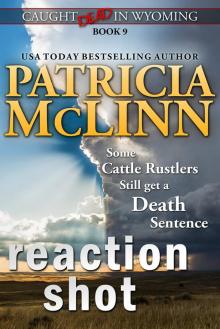 Reaction Shot (Caught Dead in Wyoming, Book 9)
Reaction Shot (Caught Dead in Wyoming, Book 9) Warm Front
Warm Front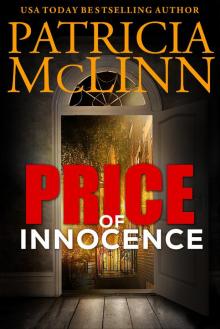 Price of Innocence
Price of Innocence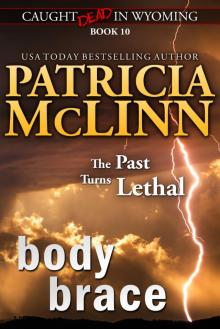 Body Brace (Caught Dead in Wyoming, Book 10)
Body Brace (Caught Dead in Wyoming, Book 10)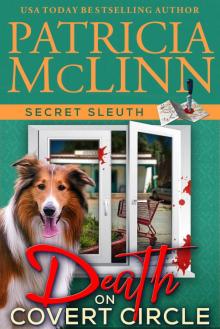 Death on Covert Circle
Death on Covert Circle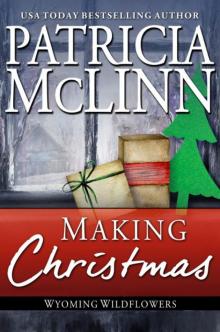 Making Christmas
Making Christmas Death on Torrid Ave.
Death on Torrid Ave.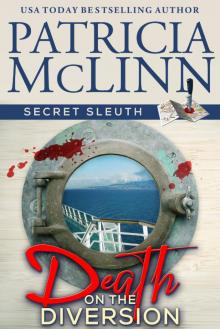 Death on the Diversion
Death on the Diversion The Rancher Meets His Match
The Rancher Meets His Match Widow Woman
Widow Woman The Runaway Bride
The Runaway Bride Hoops
Hoops A Stranger in the Family (Book 1, Bardville, Wyoming Trilogy)
A Stranger in the Family (Book 1, Bardville, Wyoming Trilogy)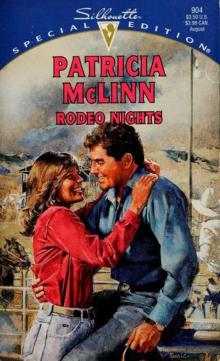 Rodeo Nights
Rodeo Nights Wedding Series Boxed Set (3 Books in 1) (The Wedding Series)
Wedding Series Boxed Set (3 Books in 1) (The Wedding Series)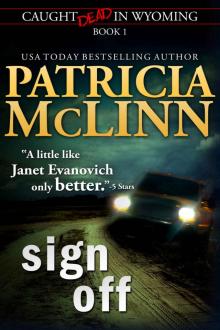 Sign Off (Caught Dead in Wyoming, Book 1)
Sign Off (Caught Dead in Wyoming, Book 1) Prelude to a Wedding
Prelude to a Wedding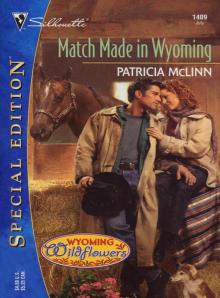 MATCH MADE IN WYOMING
MATCH MADE IN WYOMING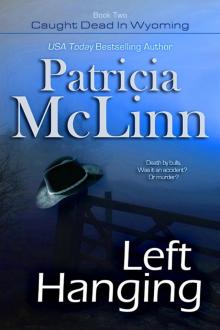 Left Hanging
Left Hanging What Are Friends For?
What Are Friends For?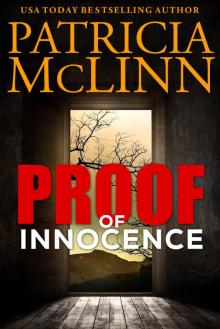 Proof of Innocence
Proof of Innocence Hidden in a Heartbeat (A Place Called Home, Book 3)
Hidden in a Heartbeat (A Place Called Home, Book 3) Baby Blues and Wedding Bells
Baby Blues and Wedding Bells Least Likely Wedding?
Least Likely Wedding? Heart Stealers
Heart Stealers Grady's Wedding
Grady's Wedding Right Brother
Right Brother Wedding of the Century
Wedding of the Century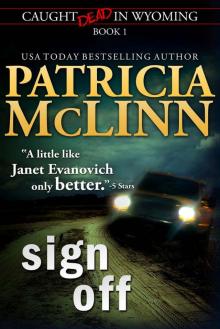 Sign Off
Sign Off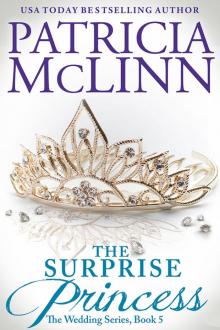 The Surprise Princess
The Surprise Princess Wyoming Wildflowers: The Beginning
Wyoming Wildflowers: The Beginning